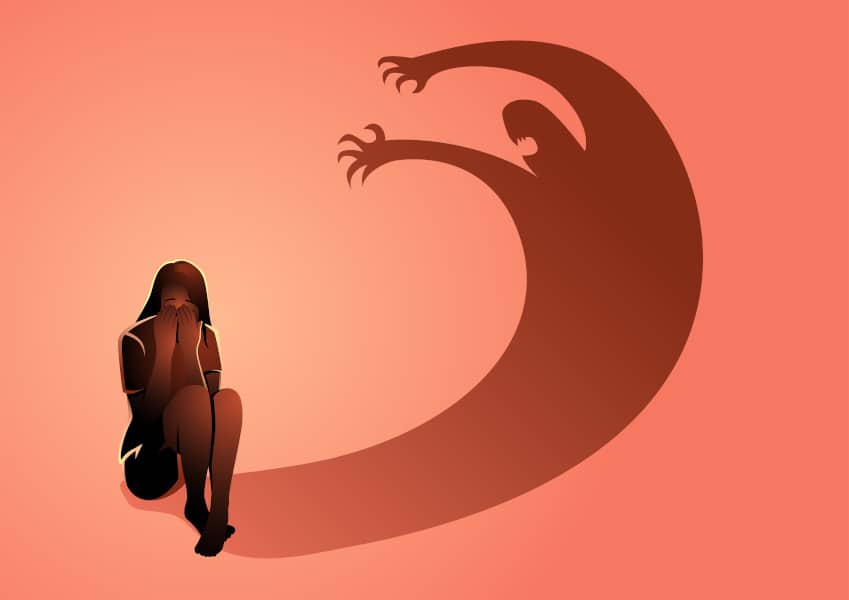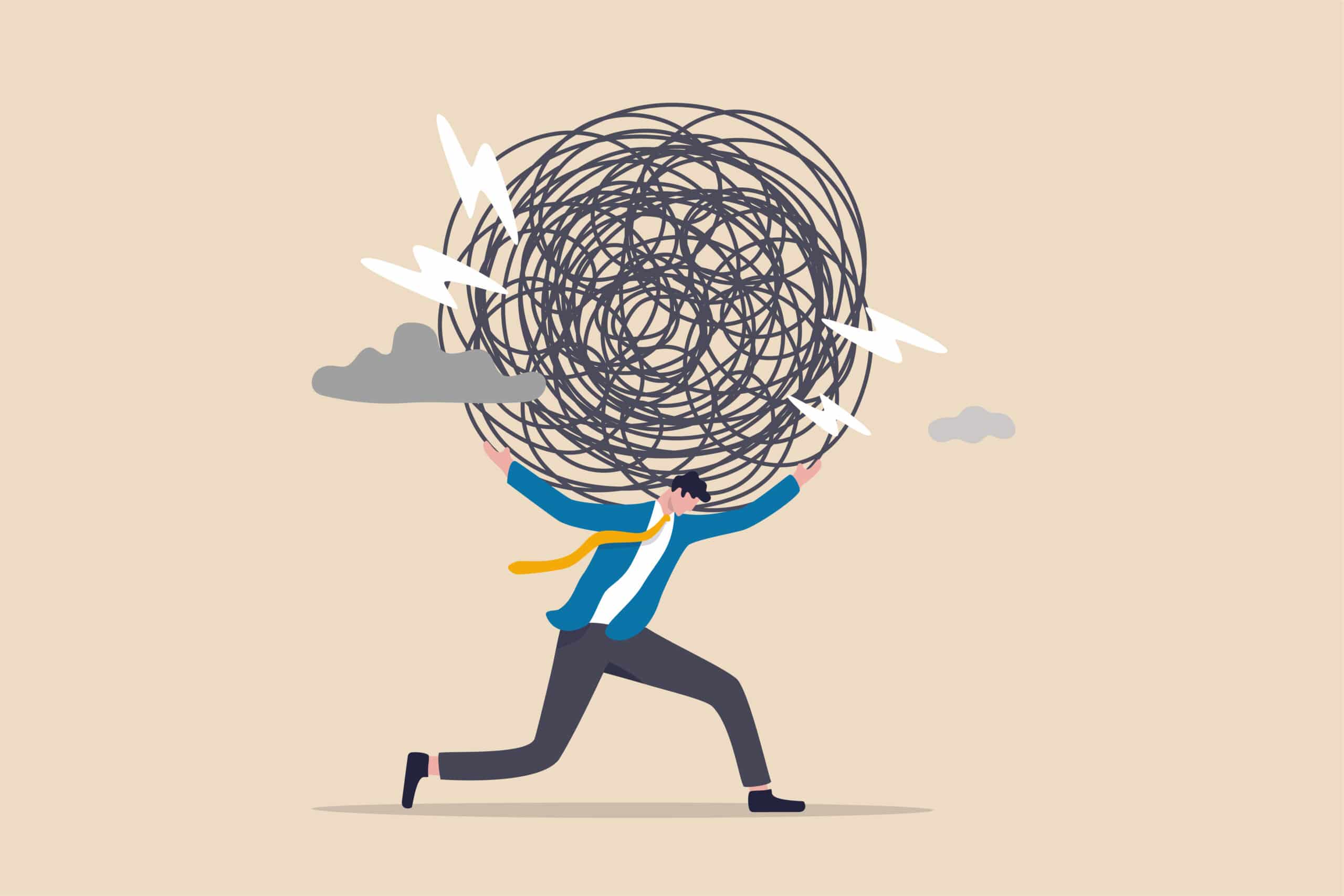It isn’t always easy to understand a friend or family member with obsessive-compulsive disorder. Many people with loved ones who have the condition wonder, “What does it feel like having OCD?” From the outside looking in, your loved one’s obsessions and compulsions don’t seem to make much sense. They also know their compulsions are illogical but that knowledge alone isn’t convincing enough to calm their obsessions.
Getting an idea of what it feels like to have OCD is a good first step toward empathizing with your loved one. They don’t intend their behavior to be frustrating; they simply cannot alleviate their anxiety until they take action. Obsessive-compulsive disorder is a debilitating condition and can keep people from living productive lives when left untreated.
Do I Have OCD?
Categorized as an anxiety disorder, OCD is characterized by patterns of obsessions and compulsions. Obsessions are unwanted, intrusive thoughts, and compulsions are the behaviors carried out to alleviate the obsessions. Compulsions include counting, lining up items, cleaning incessantly, or checking things like locks or the stove.
How Does It Feel to Have OCD?
People with OCD describe the condition as feeling like they are not in control of their brains. Their intrusive thoughts involve distressing and horrendous images that they can’t shake. They include things like someone breaking into their home, family members dying, or something bad happening to them.
Then their mind insists that these bad things won’t happen if they act on their compulsions. The thoughts force them to check the locks on their doors, ensure they didn’t leave the stove on or rearrange items on the shelf a certain way or a specific number of times. There may be no real connection between the obsession and the compulsion (i.e., my mother will die if I don’t clean my room properly), but that doesn’t make the paralyzing anxiety any less real.
When is OCD Considered Mild, Moderate, or Severe?
Clinicians categorize obsessive-compulsive disorder (OCD) into different levels of severity based on the impact it has on an individual’s daily life. They use these categories to assess the extent of the disorder and determine the best approach to treatment. These levels are typically described as mild, moderate, or severe. What does each level of severity for OCD look like?
- Mild OCD: Symptoms of OCD are present, but they typically do not significantly interfere with the person’s daily functioning. These individuals are often able to manage their daily activities with only minor disruptions caused by obsessive thoughts or compulsive behaviors.
- Moderate OCD: OCD symptoms are more noticeable and may start to interfere with daily life and routine, such as work or school. The individual may experience a moderate level of distress and may find it challenging to perform certain tasks without giving in to compulsive behaviors.
- Severe OCD: Symptoms are pronounced and significantly impact the person’s ability to function in various areas of life, such as work, relationships, and personal well-being. Their obsessive thoughts cause extreme distress and they must perform compulsive rituals to alleviate their anxiety.
Left untreated, OCD will likely progress through the stages of severity until it is entirely debilitating. Performing compulsions only provides temporary relief and that relief diminishes as the condition worsens. Treatment is beneficial for people with any level of severity of their OCD, but treatment becomes increasingly vital as the condition becomes more severe.
Can You Overcome OCD?
Following through on compulsions provides short-term relief from obsessions but only makes the condition worse in the long run. The longer a person avoids seeking help, the deeper the cycle of obsessions and compulsions runs. Thankfully, treatment for obsessive-compulsive disorder is a helpful solution. While there is no “cure” for OCD, over time, treatment equips people with the skills needed to relieve obsessions without acting on compulsions.
Treatment Options for OCD
OCD treatment typically involves a combination of psychotherapy and medication. There are no FDA-approved medications specifically for OCD, but anti-anxiety medications are a useful tool. They provide some relief from the intrusive thoughts so people can incorporate the skills they learn in psychotherapy.
Some therapeutic approaches, such as exposure and response prevention, were developed primarily for people with OCD. These specialized techniques recognize the complexities of the condition and adapt treatment methods appropriately.
How Do I Support a Loved One With OCD?
Your support is crucial when your loved one lives with obsessive-compulsive disorder. They spend most of their time consumed by crippling obsessions and unshakable compulsions. It’s nearly impossible to overcome OCD alone; a strong support system is a vital part of the recovery process. How can you support your loved one living with obsessive-compulsive disorder?
Offer Emotional Support
Sometimes the best thing you can do for someone struggling with their mental health is to simply be there. Showing up without expectation or judgment means more than you may ever realize for your loved one with obsessive-compulsive disorder. Show them that you love and support them no matter what.
Avoid Accommodating Rituals and Compulsions
Although it might seem like your loved one’s rituals help, they are not an effective long-term coping strategy. The longer you accommodate their compulsions, the longer it will take them to learn to manage their symptoms.
Connect With Support Groups
Living with someone who has OCD can be a serious challenge. It’s important to support your loved one with OCD but it’s also important to ensure you have support yourself. Find a support group, counselor, or therapist who you can turn to for help when you need it.
Help Them Find a Treatment Program
The most important thing you can do to support a loved one with OCD is to encourage them to seek treatment. There is only so much you can do to help them with their condition. Ultimately they need the support of a mental health professional or treatment program.
Lifeskills South Florida is a mental health treatment network that understands the intricacies of obsessive-compulsive disorder. We recognize that not everyone benefits from a singular approach to care. Instead, we provide highly individualized treatment plans based on each person’s needs.
If you or a loved one are struggling with obsessive-compulsive disorder, we can help. The programs at Lifeskills South Florida are designed to lay the foundation for sustained recovery. To learn more about our facilities, please call us at 866-936-3142 or complete our contact form to connect with an admissions counselor today.




